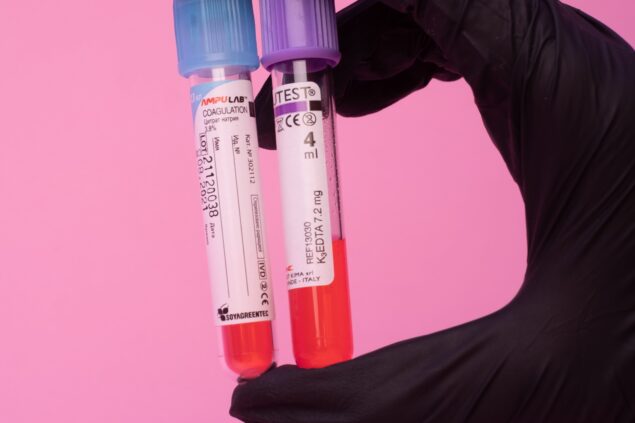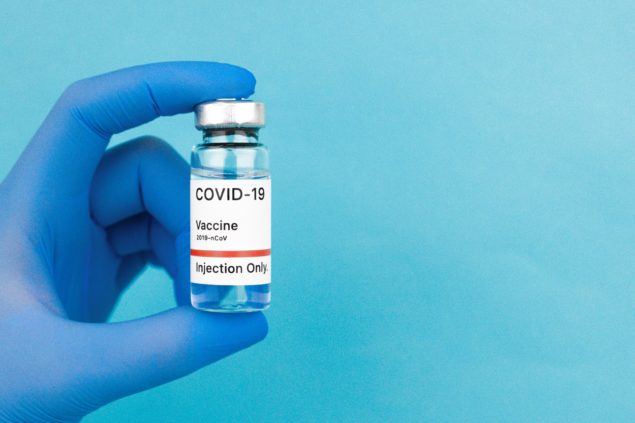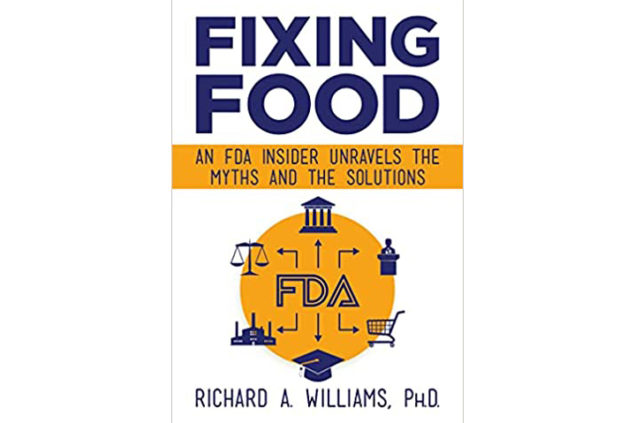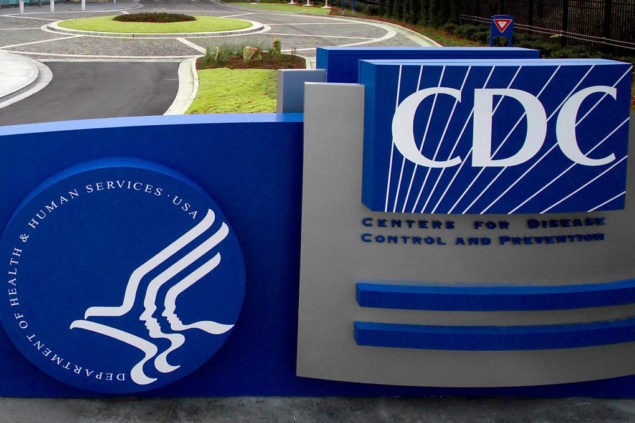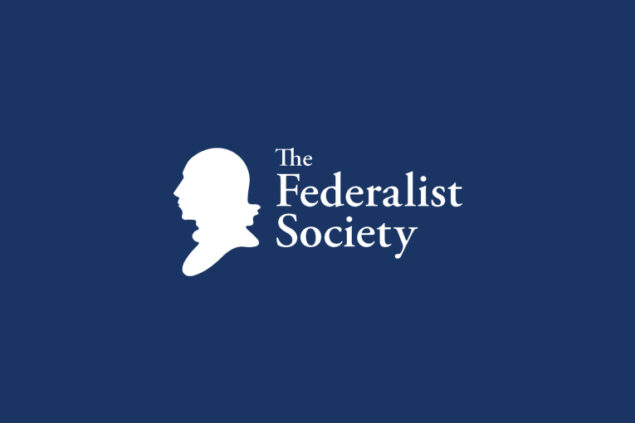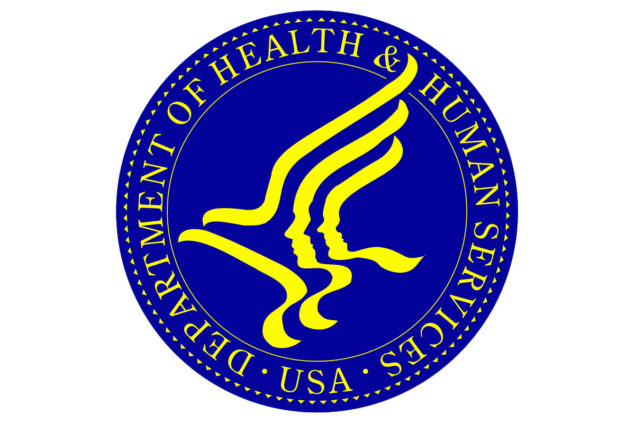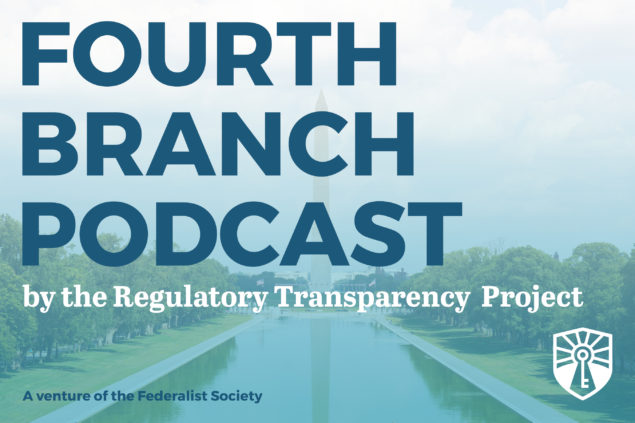FDA & Health
Topics
From food to pharmaceuticals to medical devices, the safety of what is introduced into our bodies is one of our nation’s greatest concerns. The justified importance of food and drug safety to the consumer has led to a vast regulatory framework aimed at protecting Americans from danger, but these regulations often come with a price. What are the benefits and costs of this regulatory system and how can potential improvements better ensure safety while maximizing innovation?
COVID-Era Healthcare Solutions for the Post-COVID World
The authors of this paper examine how healthcare laws and regulations were adjusted to deal with the COVID-19 pandemic, and argue that some of these changes should be made permanent.
Read this paperPromoting a More Adaptable Physician Pipeline
In this paper, James Capretta argues that the current system for regulating the physician workforce is not flexible enough to ensure that enough doctors make it into the field to serve all patients. Mr. Capretta offers a number of reforms that, he argues, would streamline the educational and licensing processes for new and immigrating doctors.
Read this paperCompetitor’s Veto: State Certificate of Need Laws Violate State Prohibitions on Monopolies
In this paper, Christina Sandefur argues that well-intentioned laws designed to limit wasteful spending, known as certificate-of-need laws, no serve mostly to allow market incumbents in healthcare to keep new entrants out of the market. This, she argues, is harmful to the public and stands in violation of state anti-monopoly laws.
Read this paperTales of Woe: How Dysfunctional Regulation Has Decimated Entire Sectors of Biotechnology
In this paper, Henry I. Miller argues that overweening regulation has forestalled development in major areas of biotechnology, from pharmaceuticals to agriculture.
Read this paperDrug-Approval Clinical Trials in the Age of Precision Medicine: The Promise of Adaptive Trials
In this paper, Peter Huber and Roger Klein explore how adaptive clinical trials could transform how medicines are prescribed by doctors, allowing doctors to harness ‘precision medicine’ to develop better and more individualized treatment plans for their patients.
Read this paperThe FDA’s Approach to Off-Label Communications: Restricting Free Speech in Medicine?
The FDA currently bars any speech by the manufacturer of a drug describing or promoting a use of the drug for any use other than an on-label use — even if the information is entirely truthful and non-misleading and could help physicians better treat their patients. Is such a restriction compatible with the First Amendment? Can the FDA modernize and clarify its position on off-label communications? Christina Sandefur delves into these important questions.
Read this paperImproving American Health Insurance Markets: Accountability to Patients, Not Government
In this paper, Yevgeniy Feyman examines the effects of the employer-sponsored insurance tax exclusion on health insurance costs and proposes solutions that could lead to “a health insurance market that is accountable to patients, doesn’t push up health care prices unnecessarily, and one that provides a product that follows a person regardless of their employment situation.”
Read this paperImproving Innovation in Health Services Through Better Payment Reforms
In this paper, James Capretta analyzes Medicare’s fee-for-service payment systems, argues these payment systems have led to inefficiencies and fragmented care delivery, discusses the attempt by the Affordable Care Act to address these issues, and suggests other potential solutions.
Read this paperExplainer Episode 65 – Reviewing Michael Cannon’s Book “Recovery”
In this RTP explainer episode 65, we are joined by Michael Cannon, Director of Health Policy Studies at the Cato Institute, and Christina Sandefur, Executive Vice President of the Goldwater Institute to discuss Michael Cannon’s new book, Recovery.
Listen to this podcastExplainer Episode 62 – FDA’s Regulation of Laboratory Developed Tests
For many years FDA has claimed the authority to regulate Laboratory Developed Tests, that is tests that are designed, produced,…
Listen to this podcastExplainer Episode 61 – FDA & Flavored E-cigarettes – Discussing Triton v. FDA
The approach the FDA has taken to regulating e-cigarettes and vape products, particularly those that are flavored, has been the…
Listen to this podcastLitigation Update: Bella Health and Wellness v. Weiser
In Bella Health and Wellness v. Weiser, a Colorado faith-based healthcare provider is challenging a recent Colorado law banning a treatment commonly…
Listen to this podcastExplainer Episode 55 – 10 Years On: The Impact and Effects of AMP vs. Myriad
On June 13, 2013, the Supreme Court issued its unanimous decision in Association for Molecular Pathology v. Myriad Genetics Inc….
Listen to this podcastExplainer Episode 53 – Biologics, Biosimilars, and the Two-fold U.S. Approval Framework’s Possible Impact on Prices
Biosimilars, a category of biologic (medicine derived from a living organism), require approval, at least in the U.S. by the…
Listen to this podcastDeep Dive Episode 263 – Food Safety: When Regulatory Jurisdictional Battles and Public Safety Collide
Food is a necessity for life. It should therefore surprise few that the federal government regulates the production and processing of food before it reaches our dinner tables.
Listen to this podcastExplainer Episode 52 – What Came Next: FDA’s Response to the Reagan-Udall Foundation’s December Reports on FDA’s Tobacco and Human Foods Program
In late February 2023, the FDA released its responses to the December 2022 Regan-Udall Foundation reports on the FDA’s Human Foods and Tobacco programs.
Listen to this podcastExplainer Episode 51 – Beyond Medicaid? Potential Paths Forward to Better Healthcare
In this podcast featuring Tom Miller, he lays out a brief summary of how we got to where we are with regards to Medicaid.
Listen to this podcastDeep Dive Episode 253 – Litigation Update: AHM v. FDA: Challenging the FDA on “Chemical Abortion Drugs”
In November 2022, the Alliance Defending Freedom (ADF) filed a federal lawsuit against the FDA on behalf of the AHM and others, challenging the FDA’s 2000 decision to legalize mifepristone and misoprostol, two drugs often used in conjunction as chemical abortifacients.
Listen to this podcastExplainer Episode 48 – The FDA & the Practice of Medicine: Possible Regulation of Off-Label Prescriptions
On December 29, 2022, President Biden signed the Consolidated Appropriations Act, 2023 into law. This omnibus law is over 4,100 pages, and, like many omnibus bills, affects a broad range of issues.
Listen to this podcastExplainer Episode 46 – The Reagan-Udall Foundation’s December Reports on FDA’s Tobacco and Human Foods Programs: What the Reports Mean and What Comes Next
In this podcast, Jeff Stier breaks down some of what the reports say, and what the next steps for both the FDA and Congress may be.
Listen to this podcastExplainer Episode 45 – Telehealth & COVID-19
Health policy experts join us to discuss telehealth regulation – what it is, what happened to it during COVID-19, and what the opportunities and barriers are for future telehealth innovation.
Listen to this podcastExplainer Episode 41 – Government Obstacles to Over The Counter Medicines
In this podcast, health policy experts discuss the role that the federal government plays in requiring prescriptions for medicines.
Listen to this podcastExplainer Episode 39 – Tax Exclusions for Employer-Sponsored Health Insurance
In this episode, Michael F. Cannon explains why he views the federal income tax exclusion of employer-sponsored health insurance as an “accident of history.”
Listen to this podcastExplainer Episode 35 – Why Was the CDC’s Travel Mask Mandate Struck Down?
Health law and policy expert Joel Zinberg joined the podcast to break down Judge Kathryn Kimball Mizelle’s ruling vacating the CDC’s public transit mask mandate.
Listen to this podcastDeep Dive Episode 215 – Sundown for the SUNSET Rule?
An expert panel joined us to discuss HHS’s SUNSET rule, the effort to repeal it, and possible future HHS actions.
Listen to this podcastDeep Dive Episode 209 – Who Should Decide Whether Drugs Are Available Over-The-Counter or by Prescription?
Michael Cannon, Joshua Sharfstein, and moderator Dan Troy debated who should decide which drugs require prescriptions.
Listen to this podcastDeep Dive Episode 208 – A Debate on COVID-19 Vaccine Mandates
Lawrence Gostin, David Hyman, and Jenin Younes joined the Federalist Society’s Georgetown Law Student Chapter to debate COVID-19 vaccine mandates.
Listen to this podcastExplainer Episode 31 – The Regulation of E-Cigarettes and Vapes
Health policy expert Jeff Stier joins the podcast to discuss all things concerning the regulation of e-cigarettes and vapes.
Listen to this podcastDeep Dive Episode 201 – Fixing Food: An FDA Insider Unravels the Myths and the Solutions
Professor David Hyman interviews Dr. Richard Williams about Dr. Williams’ new book, “Fixing Food: An FDA Insider Unravels the Myths and Solutions.”
Listen to this podcast
Explainer Episode 30 – An Update on Telemedicine Laws and Regulations
Experts explore the rationales behind telemedicine regulations and examine how reforms and lawsuits might transform how patients receive care.
Listen to this podcastDeep Dive Episode 194 – Examining the CDC’s Eviction Moratorium
Top experts dive deep into the legal issues surrounding the CDC’s eviction moratorium and the relief sought by both landlords and renters.
Listen to this podcastDeep Dive Episode 173 – The State of Healthcare Policy: from COVID-19 to Medicare for All
Professors Gregg Bloche, Larry Gostin, David Hyman, and Timothy Westmoreland discuss the current state of healthcare policy in the United States.
Listen to this podcastDeep Dive Episode 156 – Incentivizing Drug Development: Patents or Prizes?
In this live podcast, experts debate which legal rules and institutions are best-suited to promote the development and commercialization of new drugs and vaccines.
Listen to this podcastExplainer Episode 20 – COVID-19 Vaccine Approval and Distribution
Joel Zinberg joins the podcast to discuss a range of COVID-19 vaccine questions.
Listen to this podcastDeep Dive Episode 148 – Civil Liberties and COVID-19 Shelter in Place Orders
On November 19, 2020, RTP co-hosted an online event featuring Professor Julia Mahoney and J. Gregory Grisham.
Listen to this podcastDeep Dive Episode 136 – It Can Be Done Live: The Future of Our Health
An expert panel explores the potential of human ingenuity to solve the problems facing our health and the conditions necessary to make those solutions a reality.
Listen to this podcastDeep Dive Episode 133 – Medicare for All? A National Single-Payer v. Private Payer Insurance Debate
On September 22, the Federalist Society’s Villanova Student Chapter co-sponsored a debate on Medicare for All with the Villanova Law Health Law Society.
Listen to this podcastDeep Dive Episode 102 – COVID-19 and Regulatory Reform Efforts at HHS
Join us as the U.S. Department of Health and Human Services Deputy Secretary Eric Hargan discusses the role of his agency. Likely topics include COVID-19, as well as the agency’s regulatory reform efforts.
Listen to this podcastDeep Dive Episode 99 – Promoting a More Adaptable Physician Pipeline
In this episode, Jim Capretta and Chris Pope examine the current process for educating, training, and licensing physicians in the US, with a focus on whether the current process is sufficiently flexible to adjust as needed to accommodate changing demand by patients.
Listen to this podcastDeep Dive Episode 98 – Regulatory Reforms and the COVID Pandemic
In this episode, David Hyman, Roger Klein, and Shoshana Weissmann discuss potential regulatory reforms that could allow governments and private actors to be more responsive to public health threats.
Listen to this podcastDeep Dive Episode 97 – Certificate of Need Laws and Healthcare Access
Explainer Episode 12 – A Recipe for A Better World: Nine Parts Innovation, One Part Regulation
In this episode, Jeff Stier draws on the experience of Impossible Burger to argue for light touch regulation on harm-reducing technologies.
Listen to this podcastDeep Dive Episode 83 – Medicare for All
In this episode, Roger Klein and Adam Broad debate the merits of the increasingly prominent “Medicare for All” proposal for healthcare. The discussion is moderated by Courtney Hughes.
Listen to this podcastDeep Dive Episode 26 – Is the FDA’s Rule on Cigars & Vaping Products Constitutional?
Todd Gaziano (Pacific Legal Foundation) and Michael Edney (Norton Rose Fulbright) discuss the constitutional implications of the FDA’s 2016 rule on cigars and vaping products.
Listen to this podcastDeep Dive Episode 17 – Off-Label Promotion and Free Speech in Medicine
In this episode of Fourth Branch, Christina Sandefur (Goldwater Institute) discusses the First Amendment implications of regulating off-label promotion of medicines and medical devices by companies.
Listen to this podcastLitigation Update: Bella Health and Wellness v. Weiser
In Bella Health and Wellness v. Weiser, a Colorado faith-based healthcare provider is challenging a recent Colorado law banning a treatment commonly…
Watch this videoFood Safety: When Regulatory Jurisdictional Battles and Public Safety Collide
Food is a necessity for life. It should therefore surprise few that the federal government regulates the production and processing of food before it reaches our dinner tables.
Watch this videoLitigation Update: AHM v. FDA: Challenging the FDA on “Chemical Abortion Drugs”
In November 2022, the Alliance Defending Freedom (ADF) filed a federal lawsuit in the U.S. District Court for the Northern District of Texas, Amarillo Division, against the United States Food and Drug Administration (FDA) on behalf of the Alliance of Hippocratic Medicine (AHM) and others.
Watch this videoSundown for the SUNSET Rule?
An expert panel joined us to discuss HHS’s SUNSET rule, the effort to repeal it, and possible future HHS actions.
Watch this videoWho Should Decide Whether Drugs Are Available Over-The-Counter or by Prescription?
Michael Cannon, Joshua Sharfstein, and moderator Dan Troy debated who should decide which drugs require prescriptions.
Watch this videoA Debate on COVID-19 Vaccine Mandates
Lawrence Gostin, David Hyman, and Jenin Younes joined the Federalist Society’s Georgetown Law Student Chapter to debate COVID-19 vaccine mandates.
Watch this videoExamining the CDC’s Eviction Moratorium
Top experts dive deep into the legal issues surrounding the CDC’s eviction moratorium and the relief sought by both landlords and renters.
Watch this videoGovernment Funding of Medical Innovations: High Tech or Low Tech?
How do we intelligently allocate medical spending between specialized high tech tools and low tech devices?
Watch this videoHow Should Flavored Vapes Be Regulated?
Should flavored nicotine vapes be banned because they might contribute to youth addiction, or should flavors be allowed because they encourage adult smokers to switch to vaping?
Watch this videoTelehealth: The Regulatory Frontier
In this Fourth Branch video, medical professionals and legal experts examine the debates over the regulation of telehealth.
Watch this videoThe State of Healthcare Policy: from COVID-19 to Medicare for All
Professors Gregg Bloche, Larry Gostin, David Hyman, and Timothy Westmoreland discuss the current state of healthcare policy in the United States.
Watch this videoCutting Through Government Action in COVID-19: Reasonable or Arbitrary?
Legal experts and business owners affected by COVID-19 restrictions weigh in on the debate over those restrictions.
Watch this videoHow Does the FDA Evaluate Vaccines?
Dr. Henry Miller explains the FDA’s process for considering and approving vaccines for emergency use.
Watch this videoFood & Free Speech: Debating the Role of Labeling Regulation
Though the average grocery shopper would never know it, the proliferation of vegan and non-dairy substitute foods has sparked a fierce debate over how food producers label their products.
Watch this videoIt Can Be Done Live: The Future of Our Health
The creators of the award-winning documentary, They Say It Can’t Be Done, in partnership with the Federalist Society’s Regulatory Transparency Project, present It Can Be Done Live – a conversation between entrepreneurs, regulatory experts, and noted academics around creative and bipartisan solutions to global challenges to our shared future. The second of four panel events, It Can Be Done Live: The Future of Our Health, took place on September 17th, 2020.
Watch this videoHow Does the FDA Regulate Hand Sanitizer?
Due to the COVID-19 pandemic, hand sanitizer has been in high demand. The FDA has stringent regulations about the ingredients for hand sanitizer. This guidance was relaxed somewhat to allow more production from a variety of alcohol industries, such as fuel alcohol manufacturers. After these industries invested time and money preparing to produce hand sanitizer, the FDA revoked the initial guidance and dictated that all hand sanitizer must comply with the usual standards. Are the actions of the FDA justified out of a concern for safety, or should some regulations be re-evaluated in times of emergency?
T. Elliot Gaiser is an Associate at Boyden Gray & Associates PLLC.
Watch this videoDo Certificate of Need Laws Help Control Healthcare Costs?
Certificate of need laws are state regulations designed to control medical costs. New medical facilities must be assessed and approved by a state board which determines whether such a facility is needed by the community.
Christina Sandefur of the Goldwater Institute explores whether such laws have successfully controlled costs or if they have hindered the competition required to balance healthcare prices.
Watch this videoFDA Regulation of Diagnostic Testing and COVID-19
Did Food and Drug Administration (FDA) regulations hamper the fight against COVID-19 at a critical juncture? In this short video narrated by Roger Klein, we explore the relationship between the FDA and the CDC in regulating and conducting diagnostic tests.
In 2016, in response to the Zika virus, the FDA designated the Center for Disease Control and Prevention (CDC) as the country’s only diagnostic test manufacturer. In early February 2020, the CDC was ordered to distribute tests for COVID-19 which were faulty and had to have results verified by the CDC laboratory. Only in mid-March 2020, did the CDC loosen regulations which then allowed private hospitals and labs to develop and conduct their own tests.
Could more have been known about the disease at an earlier date if private testing and treatment had been allowed and encouraged? Should the COVID-19 emergency force us to reevaluate the purpose and use of public health regulations and policies?
Watch this videoE-Cigarettes: Smoke & Mirrors
In this Fourth Branch video, legal and healthcare experts debate how federal and state agencies should approach the regulation of e-cigarettes. Should vaping be encouraged as a harm-reduction strategy, with the aim of reducing cigarette-related deaths, or should regulators seek to restrict the availability of e-cigarettes, with the aim of preventing nicotine addiction? This video explores these questions and more.
Watch this videoSupreme Court to Decide Whether EMTALA Preempts State Abortion Laws: Idaho v. U.S. and Moyle v. U.S.
Abortion is before the Supreme Court once again. This month, the Court granted certiorari in consolidated cases Moyle v. United States and Idaho v. United States.
Read this articleImplementation of Reagan-Udall’s Recommended Reforms for the Center for Tobacco Products Reforms, A Six Month Status Report
Jeff Stier
About six months ago, the Reagan-Udall Foundation sent the Food and Drug Administration its Operational Evaluation of FDA’s Tobacco Program. this is a report that the FDA itself requested in July of 2022. How is the Center for Tobacco Products (CTP) implementing the recommendations of the report to date?
Read this articleHHS Proposes Rule Modifying Healthcare Conscience Regulations
Rachel Morrison
On January 5, 2023, the U.S. Department of Health and Human Services (HHS) issued a notice of proposed rulemaking (NPRM) titled “Safeguarding the Rights of Conscience as Protected by Federal Statutes.” The 11-page NPRM is open for public comment for 60 days until Monday, March 6.
Read this articleThe Real World Costs of Heavy-Handed Chemical Regulation
Jeff Stier
The application of EU-style chemical regulation in emerging economies would reduce the number of jobs available and increase the cost of living in already struggling communities. A risk-based approach like that of the United States is the best way for Brazil, India, and other countries to raise standards of living while protecting their citizens.
Read this articleA Recipe for A Better World; Nine Parts Innovation, One Part Regulation
Jeff Stier
Sometimes well-intentioned, restrictive government interventions are backward-looking problem-solving tools. Too often, they fail to deliver on the promises made to justify their costs, both in terms of unintended consequences and their cost to individual freedoms.
Read this articleFixing How FDA Regulates Diagnostic Lab Tests
Roger D. Klein
It is essential that FDA regulation strike the right balance between protection of patient safety, and encouragement of advancement and innovation in testing
Read this article









